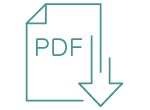|
|

|

Every major crisis demands rigorous examination of its underlying causes and hard evidence to determine the right approach to policymaking in response.
In summer 2020, an ICI working group took up these twin pursuits in response to COVID-19—conducting a wide-ranging study of the pandemic’s effect on the financial markets and how regulated funds and their investors reacted.
Our hope is that the study will serve as a useful resource for policymakers as they consider whether reforms are needed to make the financial markets more resilient in times of stress.
|
|

|

As the spread of COVID-19 triggered extraordinary market volatility and intense demands for liquidity, we worked closely with policymakers to confront the developing challenges on behalf of members and their investors.
Together with members, we urged senior US Treasury and Federal Reserve officials to adjust some of the Fed’s emergency liquidity facilities to make them more useful and effective. And at our request, SEC staff acted quickly to provide another tool to manage liquidity in difficult market conditions, first for money market funds and then for long-term mutual funds. We engaged on Capitol Hill with expertise and reliable research as policymakers drafted legislation allowing access to retirement savings during this difficult time for American workers, and worked to ensure that key personnel of mutual fund sponsors and service providers were deemed “essential workers.”
On the global front, we led a joint effort urging regulators to keep financial markets open, helped secure an extension of certain consultation deadlines, and shared timely data and analysis with policymakers and other trade bodies on the behavior of fund investors during the crisis.
|
|

|

Amid the escalating COVID-19 crisis, fund complexes raced to implement plans to ensure that they could continue serving their investors. From the earliest days, our Industry Operations Department has held weekly calls with member committees, providing a forum to share experiences in addressing COVID-related challenges—and to identify issues to raise with regulators.
Thanks to the concerted efforts of fund operations professionals and our vigorous support, the global regulated fund industry has functioned smoothly throughout the crisis, and the delivery of services to fund investors continues with minimal disruption.
|
|

|

With the onset of the pandemic, IDC successfully helped fund directors continue their crucial duties. We took a leading role in advocating for regulatory relief from the in-person fund board meeting requirement due to COVID-19.
In March, the SEC granted exemptive relief from in-person fund board voting for approvals of advisory contracts, independent auditors, and other matters. This outcome built upon our previous work resulting in a 2019 SEC no-action letter providing flexibility from the in-person board voting requirements. This year’s COVID-19 exemptive order, now extended to at least year-end 2020, carries greater legal authority and expanded the circumstances for relief.
|
|

|

Our robust advocacy on behalf of CEFs and their investors resulted in the SEC staff withdrawing a 2010 no-action letter (the “Boulder letter”), which had limited CEFs’ ability to defend themselves against activist investors seeking short-term profits.
As part of our advocacy, we submitted a comprehensive report to the SEC, demonstrating why the Boulder letter’s conclusions were wrong and how it harmed CEFs and their investors. We also met with policymakers to explain the report’s findings and highlight the benefits of CEFs—including their ability to offer retail investors exposure to private investment opportunities. The SEC is now analyzing how CEFs can help achieve the Commission’s goal of giving retail investors greater access to private markets.
|
|

|

This year, we worked with members to identify and advance diversity and inclusion (D&I) initiatives that will produce measurable progress in diversifying the workforce across the fund industry. To that end, we created a D&I Working Group of the ICI Board, as well as elevated an existing membership-based working group to a standing committee. We also reaffirmed our partnership with the Robert Toigo Foundation with a five-year commitment through the ICI Education Foundation.
The working group is spearheading several efforts, including conducting an industrywide survey of management companies’ workforces and pursuing a pipeline initiative that will introduce underrepresented talent to legal and compliance careers in asset management.
|
|

|

Interest in ESG investing grew substantially over the past year. As fund managers sought to meet this increasing investor demand, we worked tirelessly to support members in this complex, rapidly evolving space.
The year saw us advocate vigorously for sound, investor-centered ESG policymaking around the world, build a comprehensive resource center tracking ESG policy developments, and lead a working group of senior executives from our member firms. This group created a paper clarifying funds’ use of ESG integration and sustainable investing strategies.
The paper aims to help improve the public’s understanding of ESG investing and the many choices that regulated funds provide.
|
|

|

In November 2019, the SEC issued its long-awaited reproposal to reform the regulation of US-registered funds’ use of derivatives—aiming to consolidate 40 years of guidance, no-action letters, and informal comments from the Commission and staff into a single, comprehensive rule.
Our supportive comments commended the SEC for crafting a proposal that would both protect investors and preserve fund managers’ ability to use these practical portfolio management tools. The Institute also recommended several targeted adjustments to enhance the proposal, and is engaging closely with the Commission and staff to incorporate them as work continues toward a final rule.
|
|

|

For many years, we have been helping members recover taxes imposed by some EU member states on US funds while those countries exempted “comparable” local funds from those taxes. By working with members, meeting with foreign tax officials, submitting detailed memoranda, and testifying in court, we achieved three significant victories for funds and their shareholders this year.
France, which had the largest amounts at issue, began conceding claims and paying refunds. In Spain and Sweden, the highest courts ruled in favor of US claimants. Our members’ funds are recovering more than $3.5 billion dollars from these three countries, and we continue our efforts elsewhere.
|
|

|

Our years-long education and advocacy efforts led to a big win for the fund industry, asset managers, and American retirement savers this year when the DOL issued its final rule in May to modernize outdated 401(k) plan notice delivery rules and promote greater use of electronic communication.
Through academic studies (in 2011 and a 2018 update), meetings with the DOL, and comment letters, we pressed the DOL to update their e-delivery rules. We also promoted a corresponding e-delivery legislative effort through congressional testimony and worked to prevent any action on Capitol Hill that would prevent the rule from being completed. Once implemented, the rule will enhance the effectiveness of ERISA disclosures, produce millions in cost savings for participants, and benefit the environment.
|
|

|

Japan and India are important markets in the Asia-Pacific region, and through comment letters and meetings with policymakers, we successfully advocated for changes in the countries’ respective regulatory frameworks to make it easier for funds to invest in either Japanese or Indian securities.
In Japan, we convinced policymakers to include US-registered investment companies, UCITS, and other regulated funds in the exemption from onerous preapproval requirements under the Japanese Foreign Exchange and Foreign Trade Act. In India, we successfully advocated for revisions to new regulations governing foreign portfolio investors, changes that significantly eased members’ ability to invest in India.
|
|

|

We intensified our engagement with members on cybersecurity and anti‑fraud protections amid the increased risk of fraud during the global health crisis. ICI members redoubled their efforts to protect shareholders, sharing information on attacks, scams, and remediation tactics through ICI’s Chief Information Security Officer Committee and Fraud Prevention Working Group.
|
|

|

Many Asia-Pacific countries are reforming their retirement systems to help their citizens build more retirement savings. To help ICI and our members inform policymakers’ work, we are creating pamphlets on different countries’ systems and short documents about the “keys” to a successful retirement system. Our first completed pamphlet, which describes the Japanese retirement system, includes a list of resources that members can use to access further information. We also completed two “keys”—one focuses on contributions and the other on investment choice. As we develop more materials, we will use them to facilitate future discussions with policymakers in Japan and other countries.
|
|

|

In an ongoing global project, we brought to fruition a unique industry-led agreement, joining with distributors and fund managers to issue a common protocol for distribution oversight—the due diligence questionnaire.
Funds face unique challenges in performing intermediary oversight, especially in light of MiFID II requirements, changing regulatory landscapes, and the absence of an agreed-upon industry standard between funds and their distribution channels. To help address these challenges, ICI Global brought together an industry working group to develop a single due diligence questionnaire that serves as the standard for UCITS and AIFs in performing onboarding and ongoing oversight of distribution channels.
|
|

|

We continue to see how our policy and advocacy efforts on ETFs are helping shape the understanding of these funds and their role in the broader financial markets. This year, through growth of our domestic and global ETF committees and our ETF advisory committee, we advanced our role as the industry voice on ETF issues—examining regulatory, legislative, and market issues, and fostering investor education on these funds.
We’re proud that the industry’s smooth transition to implementing the SEC’s ETF rule demonstrates the impact of our years-long advocacy and empirical work and our ability to rally members and other stakeholders.
|
|

|

Our extensive network of committees and working groups has long served as a key outlet for members to talk through industry developments and share perspective on best practices. The onset of COVID-19—and the novel challenges and heightened risks that came with it—made this collaborative engagement even more critical.
The robust relationships built through this network in calmer times—together with the many new participants who joined up to contribute to the industry’s response—enabled us to convene an even deeper coalition of expertise during the crisis, share valuable information and perspective with regulators, and help members develop practical, targeted solutions for their investors.
|
|

|

A milestone: the 80th anniversary of ICI and of the key legislation that gave rise to the modern fund industry.
We reflect with gratitude on the role that ICI has played on behalf of funds, their shareholders, directors, and advisers. And we look forward to continued successes and work on behalf of funds and investors around the world.

Thorough Analysis in Response to a Crisis
Every major crisis demands rigorous examination of its underlying causes and hard evidence to determine the right approach to policymaking in response.
In summer 2020, an ICI working group took up these twin pursuits in response to COVID-19—conducting a wide-ranging study of the pandemic’s effect on the financial markets and how regulated funds and their investors reacted.
Our hope is that the study will serve as a useful resource for policymakers as they consider whether reforms are needed to make the financial markets more resilient in times of stress.

Coordinating with Policymakers as the Pandemic Took Hold
As the spread of COVID-19 triggered extraordinary market volatility and intense demands for liquidity, we worked closely with policymakers to confront the developing challenges on behalf of members and their investors.
Together with members, we urged senior US Treasury and Federal Reserve officials to adjust some of the Fed’s emergency liquidity facilities to make them more useful and effective. And at our request, SEC staff acted quickly to provide another tool to manage liquidity in difficult market conditions, first for money market funds and then for long-term mutual funds. We engaged on Capitol Hill with expertise and reliable research as policymakers drafted legislation allowing access to retirement savings during this difficult time for American workers, and worked to ensure that key personnel of mutual fund sponsors and service providers were deemed “essential workers.”
On the global front, we led a joint effort urging regulators to keep financial markets open, helped secure an extension of certain consultation deadlines, and shared timely data and analysis with policymakers and other trade bodies on the behavior of fund investors during the crisis.

Critical Member Service in Challenging Times
Amid the escalating COVID-19 crisis, fund complexes raced to implement plans to ensure that they could continue serving their investors. From the earliest days, our Industry Operations Department has held weekly calls with member committees, providing a forum to share experiences in addressing COVID-related challenges—and to identify issues to raise with regulators.
Thanks to the concerted efforts of fund operations professionals and our vigorous support, the global regulated fund industry has functioned smoothly throughout the crisis, and the delivery of services to fund investors continues with minimal disruption.

Relief for Fund Boards Builds on IDC’s Ongoing Efforts
With the onset of the pandemic, IDC successfully helped fund directors continue their crucial duties. We took a leading role in advocating for regulatory relief from the in-person fund board meeting requirement due to COVID-19.
In March, the SEC granted exemptive relief from in-person fund board voting for approvals of advisory contracts, independent auditors, and other matters. This outcome built upon our previous work resulting in a 2019 SEC no-action letter providing flexibility from the in-person board voting requirements. This year’s COVID-19 exemptive order, now extended to at least year-end 2020, carries greater legal authority and expanded the circumstances for relief.

Protecting Closed-End Funds and Promoting Their Benefits
Our robust advocacy on behalf of CEFs and their investors resulted in the SEC staff withdrawing a 2010 no-action letter (the “Boulder letter”), which had limited CEFs’ ability to defend themselves against activist investors seeking short-term profits.
As part of our advocacy, we submitted a comprehensive report to the SEC, demonstrating why the Boulder letter’s conclusions were wrong and how it harmed CEFs and their investors. We also met with policymakers to explain the report’s findings and highlight the benefits of CEFs—including their ability to offer retail investors exposure to private investment opportunities. The SEC is now analyzing how CEFs can help achieve the Commission’s goal of giving retail investors greater access to private markets.

Expanding Our Commitment to D&I in the Fund Industry
This year, we worked with members to identify and advance diversity and inclusion (D&I) initiatives that will produce measurable progress in diversifying the workforce across the fund industry. To that end, we created a D&I Working Group of the ICI Board, as well as elevated an existing membership-based working group to a standing committee. We also reaffirmed our partnership with the Robert Toigo Foundation with a five-year commitment through the ICI Education Foundation.
The working group is spearheading several efforts, including conducting an industrywide survey of management companies’ workforces and pursuing a pipeline initiative that will introduce underrepresented talent to legal and compliance careers in asset management.
quo;s goal of giving retail investors greater access to private markets.
At the ESG Forefront
Interest in ESG investing grew substantially over the past year. As fund managers sought to meet this increasing investor demand, we worked tirelessly to support members in this complex, rapidly evolving space.
The year saw us advocate vigorously for sound, investor-centered ESG policymaking around the world, build a comprehensive resource center tracking ESG policy developments, and lead a working group of senior executives from our member firms. This group created a paper clarifying funds’ use of ESG integration and sustainable investing strategies.
The paper aims to help improve the public’s understanding of ESG investing and the many choices that regulated funds provide.

Pursuing a Sound Regulatory Framework for Funds’ Use of Derivatives
In November 2019, the SEC issued its long-awaited reproposal to reform the regulation of US-registered funds’ use of derivatives—aiming to consolidate 40 years of guidance, no-action letters, and informal comments from the Commission and staff into a single, comprehensive rule.
Our supportive comments commended the SEC for crafting a proposal that would both protect investors and preserve fund managers’ ability to use these practical portfolio management tools. The Institute also recommended several targeted adjustments to enhance the proposal, and is engaging closely with the Commission and staff to incorporate them as work continues toward a final rule.

ICI Global Helps Funds Recover More Than $3.5 Billion
For many years, we have been helping members recover taxes imposed by some EU member states on US funds while those countries exempted “comparable” local funds from those taxes. By working with members, meeting with foreign tax officials, submitting detailed memoranda, and testifying in court, we achieved three significant victories for funds and their shareholders this year.
France, which had the largest amounts at issue, began conceding claims and paying refunds. In Spain and Sweden, the highest courts ruled in favor of US claimants. Our members’ funds are recovering more than $3.5 billion dollars from these three countries, and we continue our efforts elsewhere.

Helping Bring Mutual Fund Investors into the Digital Age
Our years-long education and advocacy efforts led to a big win for the fund industry, asset managers, and American retirement savers this year when the DOL issued its final rule in May to modernize outdated 401(k) plan notice delivery rules and promote greater use of electronic communication.
Through academic studies (in 2011 and a 2018 update), meetings with the DOL, and comment letters, we pressed the DOL to update their e-delivery rules. We also promoted a corresponding e-delivery legislative effort through congressional testimony and worked to prevent any action on Capitol Hill that would prevent the rule from being completed. Once implemented, the rule will enhance the effectiveness of ERISA disclosures, produce millions in cost savings for participants, and benefit the environment.

Making It Easier for Funds to Invest in the Asia-Pacific Region
Japan and India are important markets in the Asia-Pacific region, and through comment letters and meetings with policymakers, we successfully advocated for changes in the countries’ respective regulatory frameworks to make it easier for funds to invest in either Japanese or Indian securities.
In Japan, we convinced policymakers to include US-registered investment companies, UCITS, and other regulated funds in the exemption from onerous preapproval requirements under the Japanese Foreign Exchange and Foreign Trade Act. In India, we successfully advocated for revisions to new regulations governing foreign portfolio investors, changes that significantly eased members’ ability to invest in India.

Active Member Engagement Helps Meet Current Challenges
We intensified our engagement with members on cybersecurity and anti‑fraud protections amid the increased risk of fraud during the global health crisis. ICI members redoubled their efforts to protect shareholders, sharing information on attacks, scams, and remediation tactics through ICI’s Chief Information Security Officer Committee and Fraud Prevention Working Group.

Informing Retirement Reforms in the Asia-Pacific Region
Many Asia-Pacific countries are reforming their retirement systems to help their citizens build more retirement savings. To help ICI and our members inform policymakers’ work, we are creating pamphlets on different countries’ systems and short documents about the “keys” to a successful retirement system. Our first completed pamphlet, which describes the Japanese retirement system, includes a list of resources that members can use to access further information. We also completed two “keys”—one focuses on contributions and the other on investment choice. As we develop more materials, we will use them to facilitate future discussions with policymakers in Japan and other countries.

Achieving a Milestone for Distribution Oversight
In an ongoing global project, we brought to fruition a unique industry-led agreement, joining with distributors and fund managers to issue a common protocol for distribution oversight—the due diligence questionnaire.
Funds face unique challenges in performing intermediary oversight, especially in light of MiFID II requirements, changing regulatory landscapes, and the absence of an agreed-upon industry standard between funds and their distribution channels. To help address these challenges, ICI Global brought together an industry working group to develop a single due diligence questionnaire that serves as the standard for UCITS and AIFs in performing onboarding and ongoing oversight of distribution channels.

Persistent ICI Efforts Pay Off for ETFs and Their Investors
We continue to see how our policy and advocacy efforts on ETFs are helping shape the understanding of these funds and their role in the broader financial markets. This year, through growth of our domestic and global ETF committees and our ETF advisory committee, we advanced our role as the industry voice on ETF issues—examining regulatory, legislative, and market issues, and fostering investor education on these funds.
We’re proud that the industry’s smooth transition to implementing the SEC’s ETF rule demonstrates the impact of our years-long advocacy and empirical work and our ability to rally members and other stakeholders.

Advancing a Collaborative COVID-19 Response
Our extensive network of committees and working groups has long served as a key outlet for members to talk through industry developments and share perspective on best practices. The onset of COVID-19—and the novel challenges and heightened risks that came with it—made this collaborative engagement even more critical.
The robust relationships built through this network in calmer times—together with the many new participants who joined up to contribute to the industry’s response—enabled us to convene an even deeper coalition of expertise during the crisis, share valuable information and perspective with regulators, and help members develop practical, targeted solutions for their investors.

Reflecting on 80 Years of Service to the Fund Industry
A milestone: the 80th anniversary of ICI and of the key legislation that gave rise to the modern fund industry.
We reflect with gratitude on the role that ICI has played on behalf of funds, their shareholders, directors, and advisers. And we look forward to continued successes and work on behalf of funds and investors around the world.

Download a PDF of the 2020 Accomplishments